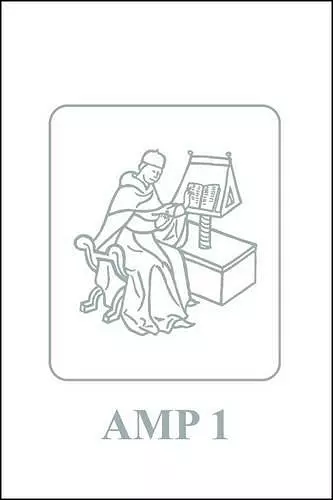On the Borders of Being and Knowing
Late Scholastic Theory of Supertranscendental Being
John P Doyle author Victor M Salas editor
Format:Hardback
Publisher:Leuven University Press
Published:1st Mar '12
Currently unavailable, our supplier has not provided us a restock date

Sylvester Mauro, S.J. (1619-1687) noted that human intellects can grasp ‘what is, what is not, what can be, and what cannot be’. The first principle, ‘it is not possible that the same thing simultaneously be and not be,' involves them all. The present volume begins with Greeks distinguishing ‘being' from ‘something' and proceeds to the late Scholastic doctrine of ‘supertranscendental being,' which embraces both. On the way is Aristotle's distinction between ‘being as being' and ‘being as true' and his extension of the latter to include impossible objects. The Stoics will see ‘something' as the widest object of human cognition and will affirm that, as signifiable, impossible objects are something, more than mere nonsense. In the sixteenth century, Francisco Suárez will identify mind-dependent beings most of all with impossible objects and will also regard them as signifiable. By this point, two conceptions will stand in opposition. One, adumbrated by Averroes, will explicitly accept the reality and knowability of impossible objects. The other, going back to Alexander of Aphrodisias, will see impossibles as accidental and false conjunctions of possible objects. Seventeenth-century Scholastics will divide on this line, but in one way or another will anticipate the Kantian notion of ‘der Gegenstand überhaupt.' Going farther, Scholastics will see the two-sided upper border of being and knowing at God and the negative theology, and will fix the equally double lower border at ‘supertranscendental being' and ‘supertranscendental nonbeing,' which non-being, remaining intelligible, will negate the actual, the possible, and even the impossible.
This volume draws our attention to a still neglected, but important period in the history of philosophy and to an equally important topic that directly leads into the heart of traditional metaphysical debates. One can only hope that more scholars will devote their attention to this fascinating period. John Doyle's works will be of invaluable help for them.
Thomas Dewender, Bochumer Philosophisches Jahrbuch für Antike und Mittelalter 18 (2015)
ISBN: 9789058678959
Dimensions: unknown
Weight: 907g
400 pages